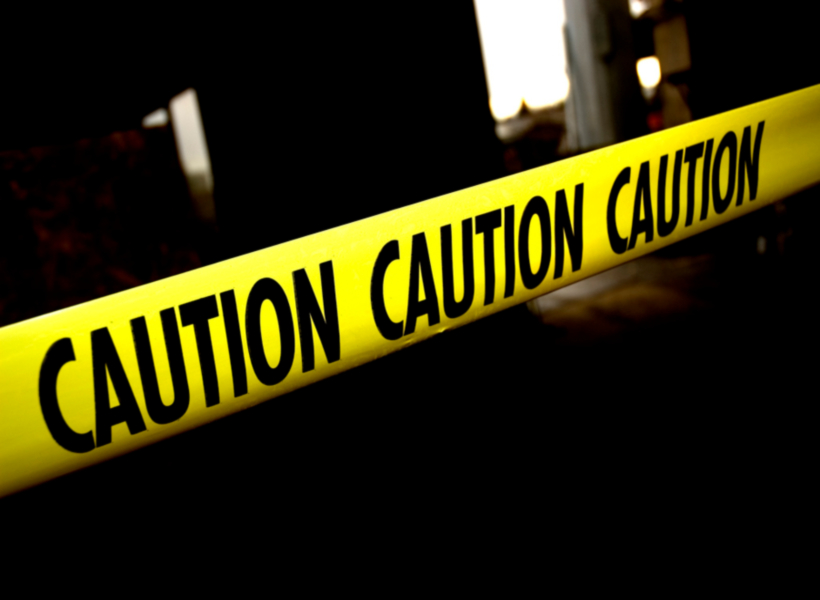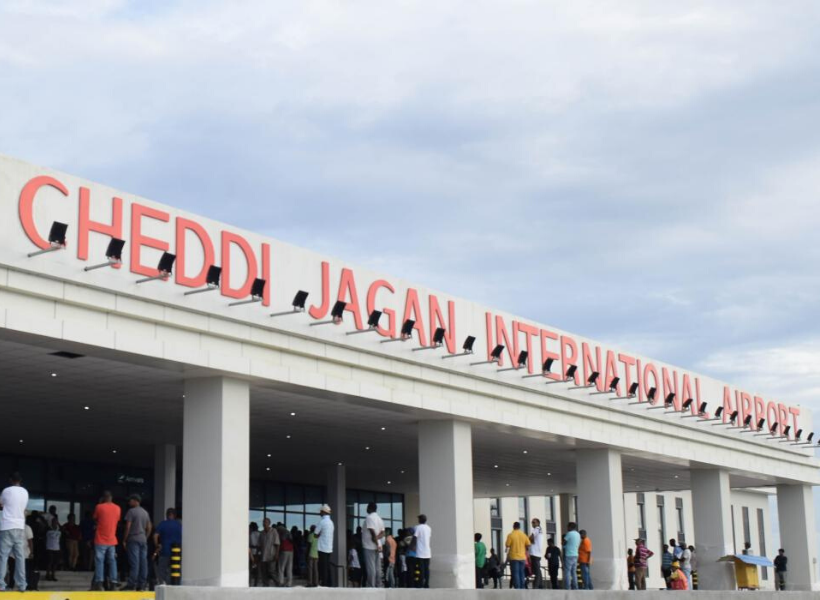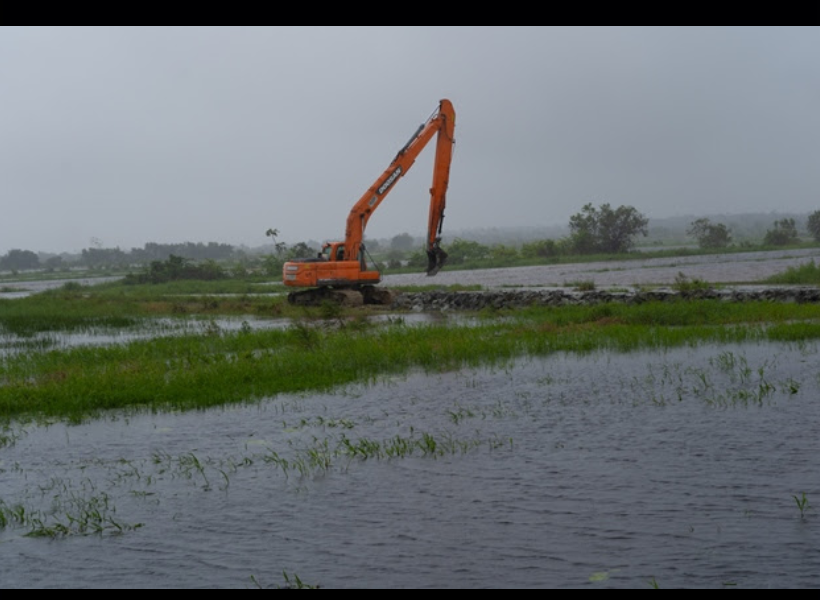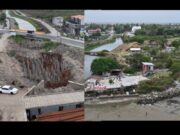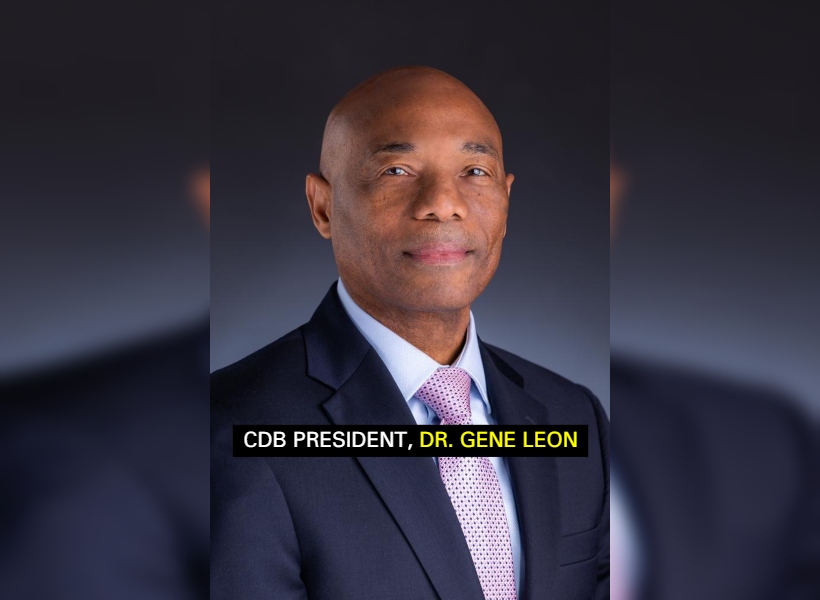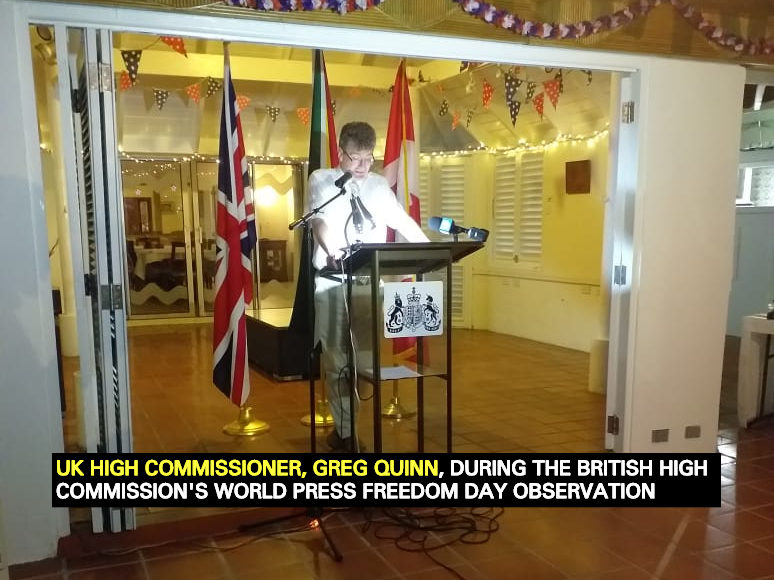While the Government of Guyana made no official statement nor did it independently facilitate any event in recognition of yesterday’s World Press Freedom Day, the United Kingdom High Commission in Guyana last evening reaffirmed its commitment to press freedom at an event it hosted for the cause and emphasised that the world “must demand better”.
At his official residence, High Commissioner Greg Quinn said that the UK remains firm in its support of the tenets of journalism.
Quinn acknowledged that while the UK, Canada, and other countries are working to promote press freedom and the safety of journalists executing their duties, the danger remains strong.
He noted that last year was one of the deadliest years for journalists.
“80 were killed for doing their work, 348 detained, and 60 were held hostage. That was a 15% increase on 2017. That trend, sadly, continues this year. Including in my own home country, Northern Ireland, where Lyra McKee was murdered by dissident Republicans on 18 April,” said Quinn.
He further noted that almost 1,000 journalists and media professionals have been killed in the past decade – all in the line of their work. “Media professionals are increasingly targeted. Legislative and practical barriers have increased. The ability of journalists to work independently and in the public interest is being increasingly limited. That should be of concern to us all,” said Quinn.
The envoy then reminded that a free media environment is an essential ingredient to a well-functioning democracy and the rules-based international system which, “without it there is no accountability.”
Quinn was quick to say that, while Guyana has its challenges in the context of press freedom, there is an environment that fosters free reporting and this seems to be getting better.
Quinn highlighted the fact that in the 2019 Reporters Sans Frontiers World Press Freedom Index, Guyana is ranked 51 out of 180 countries assessed. He noted that that is an improvement of 4 places on 2018 and of 18 places on 2013 when Guyana was ranked 69 out of 180 countries. “This is a welcome, positive, trend.”
But all is not well, Quinn stressed. He said that Reporters Sans Frontiers also referred to issues of concern. “For example they noted that: ‘officials often use various pieces of legislation – including defamation laws, which provide for fines and up to two years in jail – to silence opposition journalists.”
Quinn then noted that the UK is committed to the promotion of media freedom and the protection of journalists. Freedom of the media, and freedom of expression more broadly, is an essential quality of any functioning democracy. He said that people must be allowed to discuss and debate issues freely, to challenge their governments, and to make informed decisions.
Quinn said too that the UK sees it as completely unacceptable that a growing number of countries are using restrictive laws to stifle freedom of expression and to prevent the functioning of an independent media. “All of us who are like-minded and support a free media must do everything we can to defend the rights of the media. We must call out cases around the world where these rights are oppressed and we must act together in defence of this key element of the rules-based international system.”
Quinn continued, “Let me take this opportunity to finish by quoting the Foreign Secretary: ‘Access to fair and accurate information is … the lifeblood of democracy.’ And…‘Hard evidence shows a striking overlap between the countries with the least corruption and countries with the freest media.’
